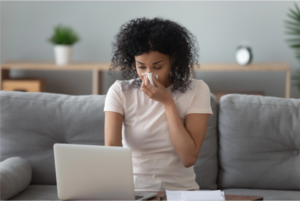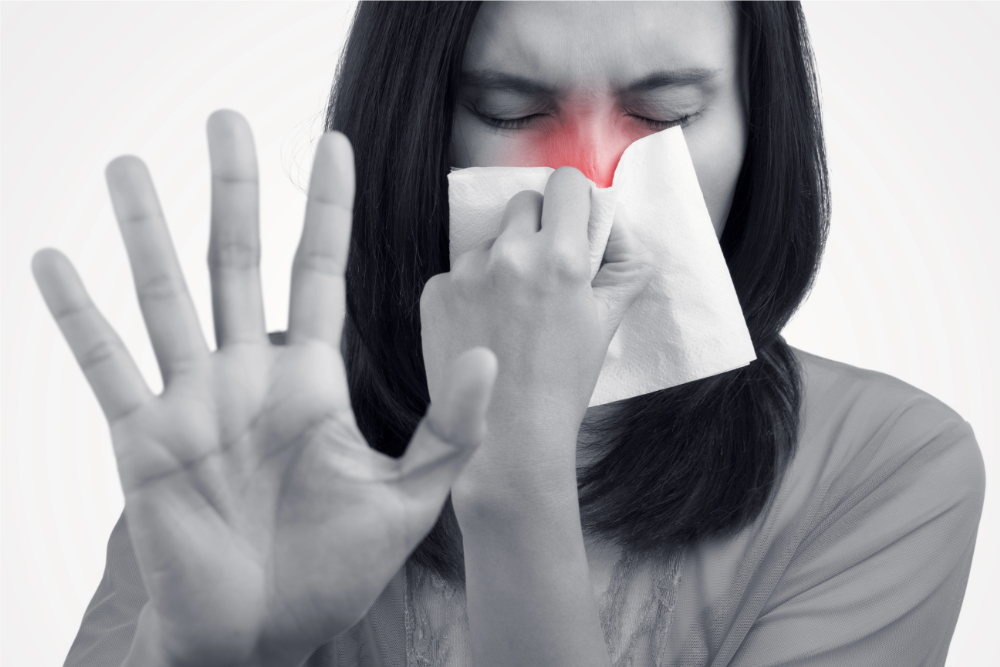As we head into colder months, it’s common to catch sniffles, sore throats, and the occasional fever. But with the flu, common cold, and COVID-19 circulating, it can be challenging to tell which illness you’re dealing with. These three share some symptoms, but they also have their own unique signs. Knowing the differences can help you decide whether to rest at home, visit a doctor, or take extra precautions to avoid spreading illness.
In this guide, we’ll cover the symptoms of colds, flu, and COVID-19, explore what sets them apart, and offer some advice on what to do if you’re feeling unwell in addition to seeing an ENT doctor in Los Angeles.
Common Cold Symptoms
The common cold is caused by several types of viruses, with rhinoviruses being the most common. Colds are usually mild and short-lived but can still make you feel lousy. Here are the most common symptoms of a cold:
- Runny or stuffy nose
- Sneezing
- Sore throat
- Coughing
- Mild headache
- Mild body aches
Colds don’t usually come with high fevers or intense fatigue. Symptoms often develop gradually, starting with a scratchy throat or mild congestion, and can last for about a week. You’re most contagious during the first few days, especially if you’re coughing or sneezing.
How to treat it: For a cold, rest and fluids are often enough. Over-the-counter (OTC) medications can help relieve symptoms like congestion and coughing. Remember to wash your hands frequently to prevent spreading the virus.
Also Read: How Do I Know If It’s Just a Cold or Seasonal Allergies?
Flu Symptoms
Influenza, or the flu, is a respiratory illness caused by influenza viruses. Unlike the common cold, the flu tends to come on suddenly and can cause more severe symptoms. Here are the main signs of the flu:
- High fever (often over 100°F)
- Chills and sweating
- Headache
- Muscle and body aches
- Extreme fatigue
- Sore throat
- Dry, persistent cough
- Runny or stuffy nose (less common)
While a cold might leave you feeling “off,” the flu often makes you feel like you’ve been hit by a truck. High fevers, body aches, and fatigue can be intense, sometimes lasting a week or more. The flu can also lead to complications like pneumonia, so it’s essential to take it seriously—especially if you’re in a high-risk group like young children, the elderly, or those with weakened immune systems.
How to treat it: Rest, hydration, and OTC medications can ease flu symptoms. Antiviral medications may help if taken within the first 48 hours, so see an ENT doctor in Los Angeles quickly if you suspect you have the flu. Annual flu vaccinations can also reduce your risk.
COVID-19 Symptoms
COVID-19, caused by the SARS-CoV-2 virus, shares many symptoms with both the cold and flu but also has its own set of unique signs. COVID-19 symptoms can range from mild to severe and often include the following:
- Fever or chills
- Dry cough
- Shortness of breath or difficulty breathing
- Fatigue
- Muscle or body aches
- Headache
- Sore throat
- Runny or stuffy nose
- Loss of taste or smell
- Nausea or vomiting
- Diarrhea
COVID-19 symptoms can appear 2 to 14 days after exposure and vary widely from person to person. While some people experience mild cold-like symptoms, others may have severe respiratory distress, especially if they are older or have underlying health conditions. A loss of taste or smell is a more specific COVID-19 symptom and is less commonly seen with colds or the flu.
How to treat it: Most mild cases of COVID-19 can be managed at home with rest, fluids, and OTC medications. However, if you experience trouble breathing, chest pain, or confusion, seek medical help immediately. Vaccination remains one of the best defenses against severe COVID-19, along with other precautions like handwashing and mask-wearing in crowded settings.
Also Read: Lost Your Sense of Smell? Is it COVID-19 or Something Else?
Key Differences to Help You Identify Your Illness
With overlapping symptoms, telling these illnesses apart can be tricky. However, there are some tell-tale signs that can help you narrow it down:
- Rapid onset of symptoms: If your symptoms come on very quickly with a high fever and intense aches, it’s more likely to be the flu.
- Gradual onset with congestion: If symptoms start slowly with congestion and a runny nose, you might just have a cold.
- Loss of taste or smell: If you notice a sudden, new loss of taste or smell, it’s a strong indicator of COVID-19.
- Difficulty breathing: Shortness of breath or trouble breathing is more common with COVID-19 than with colds or flu and can indicate a more severe case. Seek medical attention if you experience this symptom.
What To Do if You’re Sick

- Stay Home: If you’re feeling unwell, stay home to rest and avoid spreading germs. This is especially important if you have a fever or symptoms like a sore throat, cough, or fatigue.
- Stay Hydrated: Drinking plenty of fluids helps keep your body hydrated, supports your immune system, and eases symptoms like sore throat and congestion.
- Rest: Rest is one of the best things you can do for your body. Whether it’s the flu, cold, or COVID-19, your body needs energy to fight off the virus.
- Try OTC Medications: Over-the-counter medications can help relieve symptoms like congestion, fever, and headaches. Talk to a pharmacist if you’re unsure which medications are best.
- Isolate if Necessary: If you test positive for COVID-19 or suspect you have it, isolate from others and follow your local health guidelines for quarantine. Testing is an excellent tool to confirm if you have COVID-19.
- Call a Doctor if Symptoms Worsen: If you experience worsening symptoms, especially chest pain, difficulty breathing, or a persistent high fever, contact an ENT doctor in Los Angeles for further advice.
Preventive Measures to Stay Healthy
The best way to deal with these illnesses is to avoid them in the first place. Here are some tips to help prevent colds, flu, and COVID-19:
-
- Wash Your Hands Often: Handwashing is one of the most effective ways to remove germs. Wash with soap and water for at least 20 seconds, especially after being in public spaces.
- Cover Your Coughs and Sneezes: Use a tissue or the inside of your elbow to cover coughs and sneezes, then wash your hands to prevent spreading germs.
- Get Vaccinated: Both flu and COVID-19 vaccines significantly reduce the risk of severe illness. Getting vaccinated protects you and those around you.
- Avoid Crowded Spaces: In cold and flu season, try to avoid crowded indoor areas, which are more likely to spread germs.
- Keep a Healthy Lifestyle: Exercise, a balanced diet, and adequate sleep help keep your immune system strong, making it easier to fight off illnesses if you’re exposed.
Final Thoughts
Cold, flu, and COVID-19 symptoms can be confusing because they overlap. By understanding the subtle differences, you can better determine which illness you might have and take the right steps for recovery and prevention. If you’re ever in doubt, consulting a healthcare provider or taking a COVID-19 test can offer clarity.
Taking precautions like washing hands, getting vaccinated, and resting when needed will help keep you and those around you safe during the colder months. Whether you’re dealing with a simple cold or a more serious illness, giving your body the care it needs is always the best way to get back on your feet faster. Contact C/V ENT Surgical Group to schedule an appointment with an ENT doctor in Los Angeles today.

